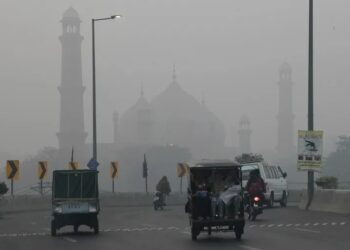Written by: Abdul Basit Alvi
The Pakistan Army is one of the most influential institutions in the country, renowned not only for its defense capabilities but also for its significant contributions in various national and international domains. From safeguarding national borders and delivering disaster relief to promoting peace on global platforms and playing a pivotal role in national development, the Pakistan Army has consistently shown exceptional service, earning respect both domestically and internationally.
In terms of defense modernization, the Pakistan Army has made significant strides, incorporating cutting-edge technologies to improve its operational capabilities. From state-of-the-art military equipment to advancements in cyber warfare and intelligence gathering, the Army consistently evolves to address emerging security challenges. Additionally, the Army has invested in developing indigenous defense technologies, including the production of advanced fighter jets, tanks, and ballistic missiles, further enhancing its defense capabilities. The Army’s technological advancements not only bolster national security but also strengthen Pakistan’s defense industry, helping the country maintain self-reliance in military technology.
The Pakistan Army’s defense efforts along borders—navigating challenging terrains, combating cross-border insurgency and smuggling, and ensuring regional stability—demonstrate its remarkable resilience, strategic acumen, and unwavering commitment. The Pakistan-Afghanistan border, known as the Durand Line, is one of the most challenging frontiers for the Pakistan Army. Stretching over 2,600 kilometers through rugged, mountainous terrain, it remains a hotspot for militancy, cross-border terrorism, and smuggling. The Pakistan Army has made substantial efforts to secure this volatile border, significantly contributing to national security and regional stability. The porous and difficult nature of the Durand Line allows militants and terrorists to move freely between Afghanistan and Pakistan, often using the terrain for concealment. In response, the Army has conducted several high-profile counter-terrorism operations, including Operation Zarb-e-Azb (2014) and Operation Radd-ul-Fasaad (2017).
Operation Zarb-e-Azb, launched in 2014, focused on eliminating terrorist sanctuaries in North Waziristan and other tribal areas along the Afghan border. Through precise intelligence gathering and joint military operations, the Army successfully dismantled key terrorist networks and their infrastructure. Operation Radd-ul-Fasaad, initiated in 2017, aimed at ensuring long-term stability across Pakistan, with a particular focus on the Afghan border areas. By combining military operations, intelligence-driven actions, and extensive surveillance, the Army disrupted insurgent networks operating across the border. These operations had wide-ranging effects, significantly weakening insurgent groups and reducing terrorist attacks within Pakistan.
A key initiative by the Pakistan Army to secure the Durand Line is the border fencing project, which began in 2017. This extensive fencing effort, designed to prevent illegal crossings, smuggling, and terrorist infiltration, is supported by surveillance infrastructure, including watchtowers, infrared sensors, and drone monitoring. These measures have made it far more difficult for cross-border insurgents to infiltrate Pakistan undetected. The establishment of checkpoints at regular intervals further strengthens control over the border, allowing for more effective monitoring of movement.
Additionally, the Pakistan Army plays a vital role in managing the refugee crisis resulting from the conflict in Afghanistan. With millions of Afghan refugees seeking shelter in Pakistan, particularly in regions like Khyber Pakhtunkhwa and Balochistan, the Army has been instrumental in providing security, humanitarian aid, and establishing temporary camps. This civil-military coordination ensures the safety of refugees while maintaining order and preventing militants from infiltrating disguised as refugees.
The success of the Army in securing the Durand Line is also due to its collaboration with local tribal leaders and communities. Through Tribal Liaison Officers and the Frontier Corps, the Army fosters communication, coordination, and cooperation with local populations, preventing insurgents from gaining local support and enabling more effective counter-terrorism operations.
In addition, Pakistan shares a 900-kilometer-long border with Iran in the Balochistan region, known for its rugged terrain, remote deserts, and the presence of militant groups and smuggling syndicates. The Pakistan Army’s role along the Pak-Iran border is crucial for maintaining national security, combating insurgent activities, and controlling cross-border criminal activities. The border has long been notorious for smuggling, including the illicit trafficking of narcotics, weapons, and fuel. The Pakistan Army, in collaboration with the Frontier Corps Balochistan, has implemented proactive strategies to combat smuggling by enhancing border surveillance and increasing patrols. Checkpoints, surveillance towers, and border posts have been set up to monitor the movement of goods and individuals across the border. Moreover, the border is a focal point for militant groups, which operates on both sides, complicating the security landscape. In response, the Pakistan Army has conducted intelligence-driven operations to target militant hideouts and has worked closely with local security forces to dismantle cross-border insurgent networks. The primary responsibility of the Pakistan Army along the Pak-Iran border is to safeguard the country’s critical infrastructure, especially the Gwadar Port, a central element of the China-Pakistan Economic Corridor (CPEC). With rising tensions in the region driven by expanding economic activity and geopolitical interests, the Pakistan Army plays a crucial role in protecting vital infrastructure and trade routes, ensuring the security of strategic projects along the border. Balochistan, which shares a substantial portion of the Pak-Iran border, has experienced insurgency from Baloch separatist groups, who often use the Iranian side for logistical support, training, and funding. The Pakistan Army’s operations in the region focus on neutralizing these insurgent groups. Through targeted strikes, joint operations with paramilitary forces, and enhanced surveillance, the Army has significantly reduced insurgent activity, improving the overall security of the area.
While the Pak-China border, stretching about 523 kilometers along the Khunjerab Pass, remains relatively peaceful, it holds immense strategic importance. The China-Pakistan relationship is crucial, particularly with the development of CPEC and the strengthening of bilateral economic ties. The Pakistan Army plays a vital role in securing this border, especially as infrastructure projects tied to CPEC continue to expand. The challenging terrain of the Khunjerab Pass, characterized by extreme weather conditions and high-altitude landscapes, presents significant security challenges. To address this, the Pakistan Army maintains a strong presence in the region, deploying surveillance systems such as thermal imaging cameras, drones, and satellite-based monitoring to ensure the border’s integrity. The Army also provides extensive security for the CPEC routes, which pass through the mountainous areas of Gilgit-Baltistan, protecting Chinese workers and preventing sabotage by hostile elements. In recent years, the Army has established security checkpoints and military bases along the CPEC routes, particularly in regions prone to insurgency. Additionally, the Pakistan Army’s responsibilities along the Khunjerab Pass extend to responding to natural disasters, including avalanches and earthquakes, which are common in this high-altitude area. Specialized search-and-rescue units are stationed there to respond swiftly in emergencies, ensuring the safety of personnel and the smooth flow of trade and transportation.
The Line of Control (LOC), which separates the Indian-occupied and Pakistan-administered regions of Jammu and Kashmir, has been a hotspot of military tension and conflict for over seventy years. As one of the most heavily militarized borders in the world, the LOC has been the site of significant conflict, particularly since the partition of British India in 1947. Due to its strategic significance, the Pakistan Army is crucial in defending the country’s sovereignty, preserving territorial integrity, and maintaining peace in a region often marked by frequent skirmishes, artillery exchanges, and covert operations. The Pakistan Army’s exceptional defense efforts along the LOC, carried out in some of the most challenging conditions, demonstrate its professionalism, resilience, and unwavering dedication to protecting Pakistan’s national interests. The LOC is more than just a physical border; it represents the enduring conflict between Pakistan and India over the Kashmir region. The 740-kilometer-long Line of Control (LOC), though not officially recognized as an international border, separates the positions of the two nuclear-armed nations in the disputed region of Jammu and Kashmir. Since the Indo-Pakistani War of 1947-48, this area has been a constant site of both conventional and unconventional warfare, marked by frequent skirmishes, ceasefire violations, and military operations. Pakistan’s role along the LOC is both defensive and strategic, as it involves countering aggression, maintaining peace, and ensuring the safety of civilians in the region.
The terrain along the LOC is varied, ranging from dense forests and rugged mountains to barren lands, with extreme weather conditions, including harsh winters. Over the years, the Pakistan Army has adapted its strategies to these challenging conditions, ensuring effective defense and successful operations in this volatile environment. One of the most notable military engagements along the LOC was the Kargil Conflict of 1999. Despite the difficult high-altitude terrain, the Pakistan Army demonstrated impressive strategic defense and operational effectiveness. Pakistan’s military, including its elite forces, seized key positions on the Kargil heights, which held strategic importance for controlling the Siachen Glacier and surrounding regions. Although the conflict ended with forces returning to pre-war positions, it highlighted the Army’s capabilities in high-altitude warfare. The operation showcased the Army’s quick adaptation to difficult terrain, use of covert infiltration, and mountain warfare tactics, alongside effective intelligence gathering, logistical support, and coordination between different military units.
Since the 2003 ceasefire agreement, which called for a halt in hostilities along the LOC, there have been numerous violations by India, leading to both conventional and unconventional military operations. In response, the Pakistan Army has exercised remarkable restraint and strategic calculation. Pakistan’s reactions to these violations have ranged from precision artillery strikes to counter-insurgency operations. The Army has deployed mobile strike units, including the Special Services Group (SSG) and Rangers, to conduct surgical strikes against Indian positions threatening Pakistan’s territorial integrity. These strikes are designed to minimize civilian casualties while sending a strong message of deterrence and demonstrating Pakistan’s military strength.
In recent years, the Pakistan Army has significantly enhanced its technological capabilities to monitor the LOC and prevent hostile movements. The integration of modern surveillance systems and cutting-edge technology has improved the Army’s defense effectiveness along the LOC. Drones and Unmanned Aerial Vehicles (UAVs) have become essential tools for surveillance and reconnaissance, providing real-time intelligence on enemy movements and allowing for precise planning of counter-offensive actions. This technological advancement ensures that the LOC is under constant observation, making it much harder for hostile forces to infiltrate.
The defense of the LOC also heavily depends on the Pakistan Army’s artillery units, particularly long-range artillery, mortar systems, and rocket launchers, which are strategically positioned to respond to aggressive actions across the line. Recently, the Army has modernized its artillery with advanced howitzers and multiple-launch rocket systems (MLRS), further strengthening its defensive capabilities. These advanced systems enable the Army to respond effectively to ceasefire violations and strike enemy positions with exceptional precision. The Army has also prioritized the domestic development of advanced munitions, such as guided artillery shells, which maximize accuracy, reduce collateral damage, and strengthen deterrence. Despite the challenging security environment along the LOC, the Pakistan Army plays a vital role in supporting the civilian population living in these border areas. The regions of Azad Jammu and Kashmir (AJK) and Gilgit-Baltistan, which frequently experience shelling and cross-border artillery fire, have seen civilian casualties and significant infrastructure damage. The Pakistan Army has demonstrated exceptional commitment to providing humanitarian aid during times of crisis. Military hospitals have been established to treat the wounded, and field medical teams are frequently deployed to remote areas to offer medical assistance. The Army also plays a key role in rebuilding homes, schools, and roads damaged during clashes, helping maintain the support of local populations who live under the constant threat of violence. Additionally, the Pakistan Army is actively involved in disaster relief efforts during natural calamities such as floods, earthquakes, and landslides, which often impact LOC areas. The Army’s swift emergency responses, including rescue missions and supply distribution, have earned praise from both local communities and the international community.
The Pakistan Army’s defense operations along the LOC also include a significant psychological component. It has employed deterrence strategies to ensure that any potential aggression from India is met with a strong military response. Through media briefings, public statements, and strategic troop deployments, the Army conveys a powerful message of resolve and preparedness. This not only deters escalation but also boosts the morale of both the local population and the armed forces.
The conditions along the LOC are extremely harsh, and the challenges faced by the Pakistan Army are diverse, ranging from severe weather and difficult terrain to the constant risk of conflict escalation with India. The LOC spans a variety of landscapes, from rugged mountain ranges to dense forests and vast barren stretches, all of which pose significant challenges in terms of mobility, logistics, and surveillance. Much of the LOC lies within high-altitude terrain, including the Pir Panjal Range, which rises above 4,000 meters (13,000 feet). The extreme weather conditions at such elevations create substantial difficulties for soldiers stationed in the area. Oxygen deprivation and low atmospheric pressure significantly decrease soldiers’ physical endurance, necessitating rigorous mountain warfare training to acclimatize to these conditions. Additionally, the lack of oxygen can cause physical exhaustion, making operations in these regions demanding and taxing.
The harsh winters, with temperatures plunging to sub-zero levels, add further challenges, such as the risk of frostbite, hypothermia, and frost-covered equipment. Soldiers must remain vigilant despite the danger of cold-related injuries. The LOC often runs through forested areas and valleys surrounded by steep ridgelines, gorges, and rivers, which complicate troop movement and resupply logistics. This terrain also makes surveillance and monitoring operations more difficult, increasing the likelihood of infiltrators crossing the border undetected. The rough terrain also presents significant logistical difficulties in transporting essential supplies, such as food, ammunition, and medical equipment. Narrow, winding mountain roads are susceptible to landslides, avalanches, and rockfalls, which further complicate supply movement, especially during harsh weather conditions. The LOC has been a longstanding point of military tension between Pakistan and India, with India frequently violating ceasefire agreements. The Pakistan Army constantly faces a looming threat from Indian forces along the LOC, often stationed in close proximity, resulting in regular skirmishes, artillery exchanges, and firefights. One of the major challenges along the LOC is the frequent violation of ceasefire agreements by Indian forces. The Pakistan Army is responsible for responding to these violations while maintaining a strong defense along the border. Artillery shelling and small arms fire are common, with both Indian and Pakistani forces engaging in daily exchanges of fire in some areas. These artillery duels, which can be intense, often result in civilian casualties, infrastructure damage, and loss of life. Soldiers stationed at forward positions are constantly on high alert, unable to relax as sporadic attacks can occur at any time. The close proximity to enemy positions heightens stress levels, as soldiers are always aware that tensions can flare up unexpectedly, putting their lives at risk. This constant threat of conflict creates a high-pressure environment, where the emotional toll on soldiers is considerable. The presence of civilian populations in regions like Azad Jammu and Kashmir, where people live in constant fear of shelling, adds to this pressure. Soldiers often find themselves not only defending their positions but also trying to protect the local population, which can be emotionally taxing.
Ensuring the success of military operations along the LOC heavily depends on effective coordination of logistics, communication, and supply chains. The terrain and weather create significant logistical hurdles, particularly in remote areas. Resupply missions can face delays due to the difficult terrain, making it challenging to ensure that troops always have the necessary supplies such as ammunition, food, medicine, and medical equipment. In remote forward posts, especially in winter, avalanches and landslides can block supply routes for weeks, leaving troops isolated and vulnerable. Maintaining communication in the dense forests and high-altitude areas is also difficult. While the Pakistan Army utilizes advanced communication technology, factors like signal jamming, harsh weather, and rough terrain can interfere with operations. In such situations, soldiers must rely on traditional communication methods, which can slow response times.
Despite these challenges, the Pakistan Army plays a crucial role in ensuring the protection and support of civilians living near the LOC. Areas close to the border, especially in Azad Jammu and Kashmir, often bear the brunt of artillery shelling and cross-border fire, leading to civilian casualties and displacement. The Pakistan Army provides vital medical assistance to those affected by the conflict, setting up field hospitals and medical camps for emergency care, with soldiers risking their own safety to evacuate injured civilians. The Army also aids in the reconstruction of homes and public infrastructure damaged by cross-border fire. Additionally, the Pakistan Army plays an important role in disaster relief efforts during natural calamities, such as earthquakes, floods, and landslides, that impact areas near the LOC. Soldiers are assigned to rescue missions, clear debris, and distribute aid to the affected communities.
I had always wanted to visit the LOC, but unfortunately, I never got the chance. I longed to spend a full Eid day with the Pakistan Army and witness how they celebrate Eid far from their families and loved ones. I believed that Eid would be the perfect occasion to experience their patriotism and dedication firsthand. So, I set out early in the morning for the LOC and arrived at the regional LOC Headquarters on time. I joined the soldiers and officers present there to offer Eid prayers together. I then made my way to the LOC, which was just a few kilometers from the headquarters. The environment at the LOC was truly remarkable. Every officer and soldier was carrying out their duties with remarkable dedication, without any signs of sorrow for being away from their families during Eid. This spirit was truly inspiring. I visited the front-line bunkers and saw firsthand the challenging living and working conditions that our troops endure. It filled me with immense pride to witness such bravery and selflessness from our Army, operating in such tough conditions. I spoke with several soldiers and officers, and they exhibited remarkable morale and deep love for their country. They all strongly expressed their commitment to continue working for the cause, even in tougher conditions.
One important thing I learned is that the LOC is a fence-less border. While Pakistan has not installed any fence along the LOC, India has constructed one. This highlights the different approaches taken by the two countries regarding Kashmir. Pakistan’s decision not to install a fence sends a clear message that we consider Kashmir a disputed region, and we are committed to its cause, refusing to acknowledge it as a formal border. Pakistan’s stance is that all of Kashmir should be unified, allowing its people the right to self-determination. On the other hand, India’s action of installing a fence is a clear indication of its intent to integrate Indian-occupied Jammu and Kashmir (IIOJK) into India, which is a direct violation of UN resolutions.
I also visited the crossing point on the LOC, which is marked by a bridge. On Pakistan’s side, it’s known as Aman Bridge, while on the Indian side, the sign read “Kaman, Aman, and Satto.” The world is well aware of the kind of “peace” that exists in IIOJK, given the ongoing atrocities committed by India and its forces. The morale of the Pakistani Army at the LOC was incredibly high. I also learned that soldiers and officers stationed at the LOC could not offer Eid prayers due to their duties, which further demonstrated the value of their sacred mission. This commitment kept them on duty during such an important occasion.
I witnessed mock drills for coordinating meetings with the enemy, which highlighted the Army’s readiness and professionalism. The level of satisfaction among the soldiers and officers, in terms of their dedication to their mission, was remarkable. I interviewed a few soldiers who, despite being away from home, wished Eid greetings to the nation, sending a powerful message to the people that they should not fear the enemy, as their sons are stationed at the border, ready to defend every inch of the homeland.
I returned to the headquarters, where we shared a grand lunch. In the Pakistan Army, the tradition of a grand lunch is a special occasion where all ranks, from officers to soldiers, sit and eat together. The atmosphere was truly special, reflecting the equality that exists between the officers and the soldiers in the Pakistan Army. I also learned that the Army does not spend extra funds on such meals; instead, they use their savings of food supplies for such events, showcasing the spirit of shared sacrifice.
I left for home in the afternoon, but as I reflect on that day, I still feel something missing inside. The moments I spent at the LOC have left a lasting impact on me, and I now understand the true essence of patriotism, selflessness, and devotion. Having visited the LOC, I am in a much better position to assure the nation that we are in safe hands. We salute the brave sons of our motherland who sacrifice their Eid celebrations for ours. The entire nation recognizes the remarkable services of the Pakistan Army, and we are deeply grateful for their unwavering commitment to the country.

























